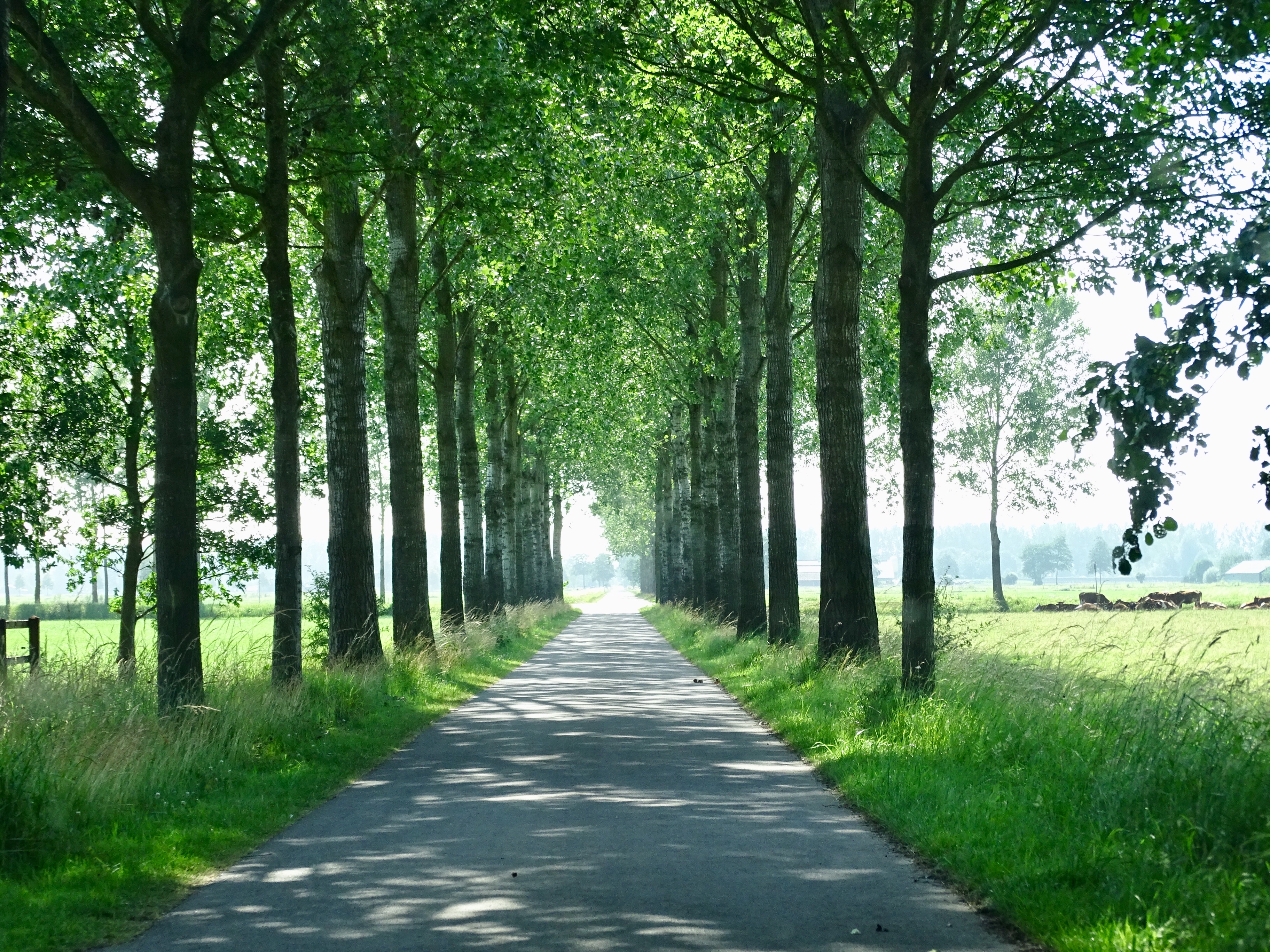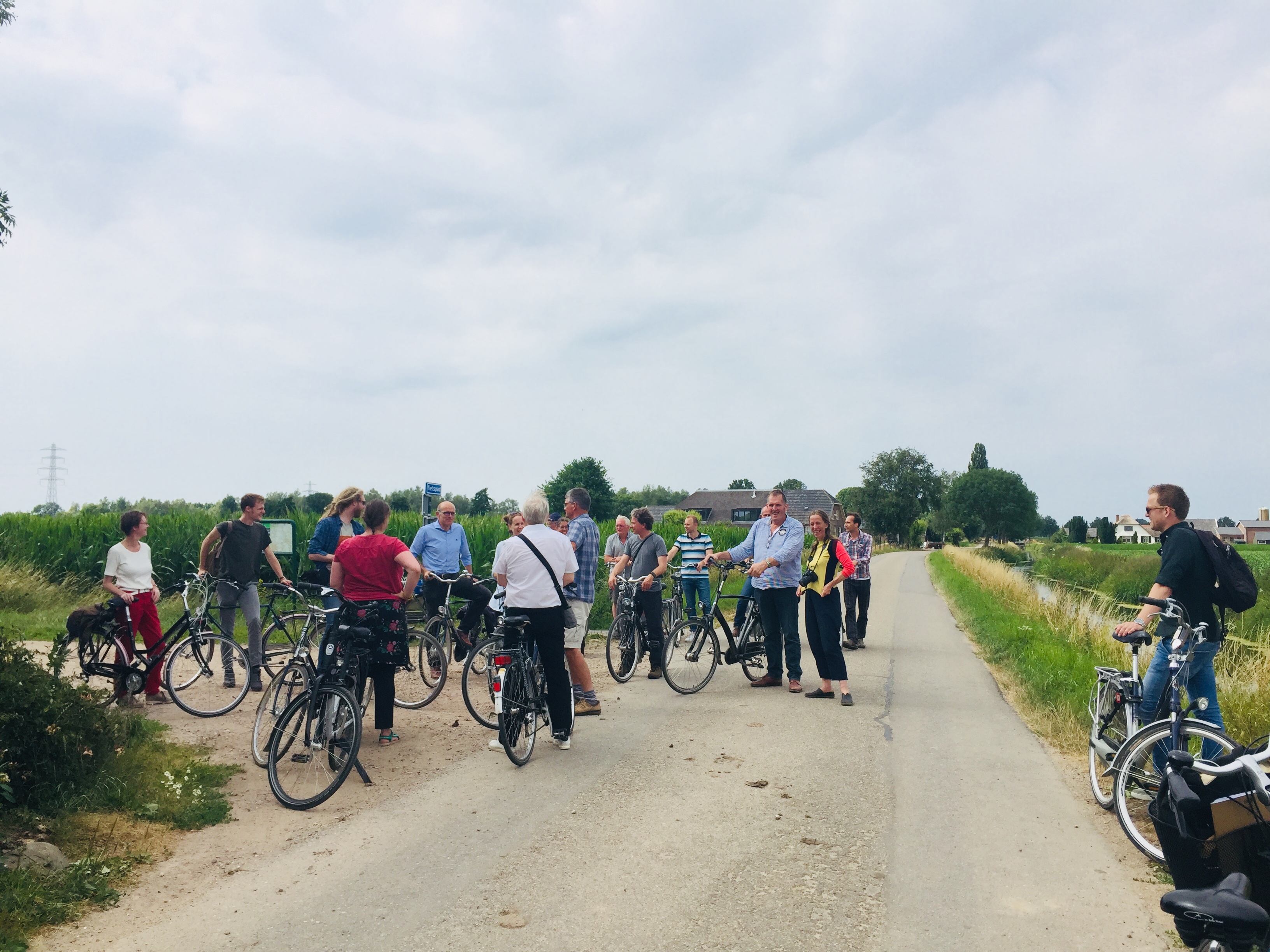For planners, the word ‘polder’ is synonymous with wonderfully empty spaces to realise spatial development ambitions. In addition to the potential for urban growth, or even building in the pasture, the country represents valuable space for recreation and food production. Recently water management and the energy transition have been added to these resources. Is the countryside then valued enough in its own right, or merely viewed as a ‘rural problem’ to be solved by urban interests? In the Nijbroek Polder we set out with locals and experts to chart the intrinsic qualities of this area; which challenges present themselves and which opportunities do they offer for the future of this part of the countryside?
The view of the countryside
The countryside has become popular. Lawmakers have taken increasingly more interest in rural areas, owing to the significant changes taking place there presently. The rural landscape is seen as the playing field for urgent matters, such as sustainable food production, water management and the transition to renewable energy. These themes require innovation and sufficient space; something that urban areas cannot offer.
The rural landscape is seen as the playing field for urgent matters, such as sustainable food production, water management and the transition to renewable energy.
Rijksbouwmeester (Chief Government Architect of the Netherlands) Floris Alkemade illustrated the opportunities inherent in these challenges for the countryside in his essay ‘De emancipatie van de periferie’ (‘the emancipation of the periphery’). The recent competition ‘Brood en Spelen’ (bread and playing) aimed to generate new perspectives on the development of rural areas by bringing together farmers and other landowners. Those rural areas that don’t always count in the national discourse – often with the quip ‘is there life beyond the Randstad?’ – have a chance to participate. The lack of appreciation for the countryside could offer a stimulating sort of freedom to modernise. The chance to be emancipated.
Vacant at first glance, but by no means empty
But is the countryside actually empty and neglected? That depends on who you ask. In comparison with urban areas, rural spaces may seem vacant, but it is certainly not a blank page. The Nijbroek Polder, for example, offers its 700 residents a vast amount of space, not one meter of which goes unused. The area was reclaimed in the early fourteenth century for its fertile river clay, which generated income for a monastery. Even in 2018, the land continues to be worked, largely for agricultural purposes. The spatial arrangement with characteristic plot dimensions and waterways remains largely unchanged after centuries of continued use. This is in some ways also true for the social structures. Self-reliance is not a new concept for Nijbroek and the participatory society here is a given since the people are accustomed to working together. The small community in the polder has always remained actively engaged with their environment.
What appears on a national scale to be vacant space, is, on a local level, deeply meaningful. A local scale with its own dynamic and challenges.
It is not an area to tackle large-scale issues without also offering more solutions. What appears on a national scale to be vacant space, is, on a local level, deeply meaningful. A local scale with its own dynamic and challenges. Agricultural development, for example, can have significant impact on land use and management where an aging population presents a challenge to the vitality of the village.

Emancipation?
This does not mean that larger scale issues shouldn’t be addressed in rural areas. The countryside can still contribute. The development offers, furthermore, opportunities to explore new forms of living and working in the rural context, creative solutions for challenges on the local level.
If rural areas must emancipate themselves, then perhaps the challenge lies largely in self representation; in safeguarding quality and preservation and building upon local heritage, history and identity in order to actively enrich one’s own living environment, a future-proof environment.
These wider scale issues can, however, only be tackled productively when they find a foothold in the local concerns, opportunities, and initiatives. The local interests certainly must be the driving factors in ultimately determining the future of the countryside. If rural areas must emancipate themselves, then perhaps the challenge lies largely in self representation; in safeguarding quality and preservation and building upon local heritage, history and identity in order to actively enrich one’s own living environment, a future-proof environment.
A vision for the future of the Nijbroek Polder
The people of Nijbroek have taken on these challenges. Open Kaart is commissioned, by the municipality of Voorst and local interest group Plaatselijk Belang Nijbroek, to form a vision for the future of the polder. Both residents and relevant local parties contribute, share what they value, assist in the search for quality in the area and map out the relevant themes for the project. A shared framework is sketched for the future, combined with a clear picture of the forces that influence this bit of the countryside. Design knowledge helps to chart a vision for the distant future and to make possibilities for the near future concrete. Not from a lack of appreciation, but rather building upon what is already valuable in order to find appropriate solutions for large- and small-scale issues. All this to achieve a future-proof polder.

A particular challenge. The integral approach and interdisciplinary cooperation from the beginning of the project is unique. The plan is not yet precisely defined, but the future is taking shape in dialogue with residents and local parties. We work together towards an ambitious and well-supported vision on the cutting-edge – where conflicting interests sometimes arise – with a solid plan for implementation. Are you curious about the insights from this project? The follow along at www.poldernijbroek.nl.




